Episode 92: The Positive Impact of Camp with Echo

Cady “Echo” Latt shares her GAC story, which started back in 2008 when she attended a one week “Nuggets” program after she had finished Kindergarten. After 10 years as a camper, Echo joined as a Junior Counselor. She’s now in her 5th year on staff. This year, Echo joins Sneaks in heading up our Junior Counselor Program.
In this longer conversation than our typical podcast chat, Echo and Sunshine talk about the benefits of camp, how camp has shaped her, and how much teens especially benefit from time at camp.
Related
Five Reasons Every Teen Should Go To Summer Camp
Dancing and the Brain (Harvard Medical School)
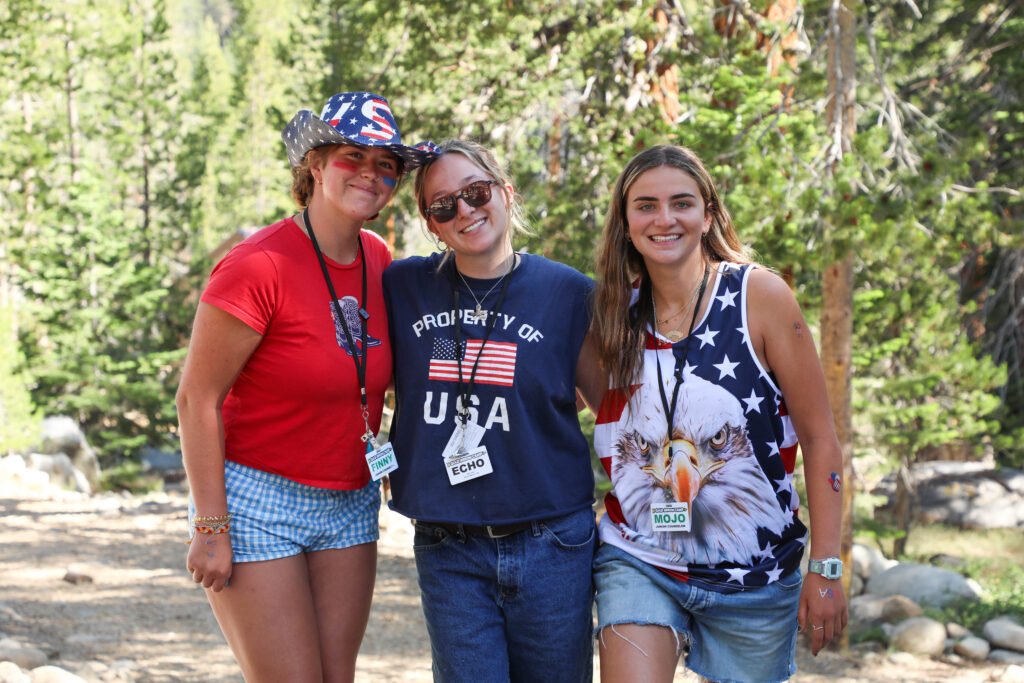
Podcast: Play in new window | Download
Subscribe: Spotify | Email | RSS
Episode 91: Getting Outside with Boulder
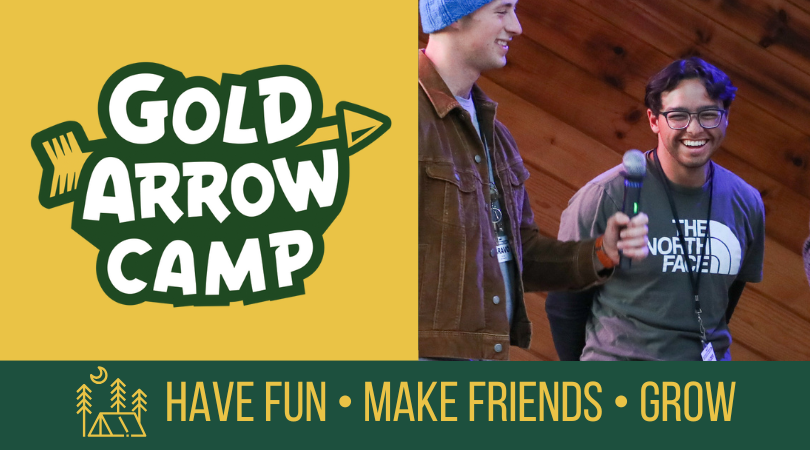
Fifth year camp staff member and 2025 Head Counselor, Boulder, talks about his experience as a camper at GAC and his love of backpacking and being outdoors that has developed as a result of his time at camp. Since one of our GAC core values is “Connecting with Nature,” it’s great to hear about the impact GAC has had on Boulder’s love of the outdoors.
Podcast: Play in new window | Download
Subscribe: Spotify | Email | RSS
Episode 90: The GAC Experience with Punkie

Paige “Punkie” McKee reflects on her five years as a camper and five years (including this summer) on staff at Gold Arrow Camp. She reflects on the impact of her camp experiences and how the independence and adventure she experienced at camp has helped her pursue an equally adventurous adulthood. This summer, Punkie is leading the Media Team (photographers and videographer). We talk about some of the behind-the-scenes work that goes into posting all those great photos parents get to see while their camper is at GAC!
Podcast: Play in new window | Download
Subscribe: Spotify | Email | RSS
Episode 89: WOWs with Bravo
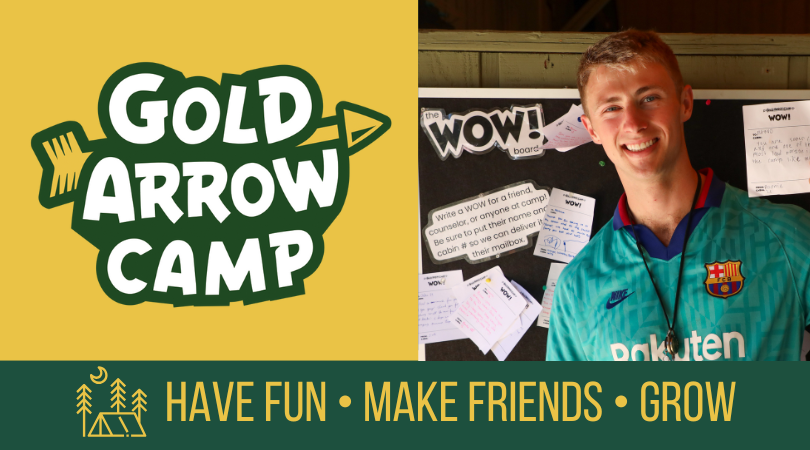
Writing “WOW”s, or positive notes and affirmations, is a habit we practice daily at Gold Arrow Camp. In this episode, Sunshine and Bravo talk about how we do WOWs, why we do WOWs, the magic relationship ratio, and the power of positive words!
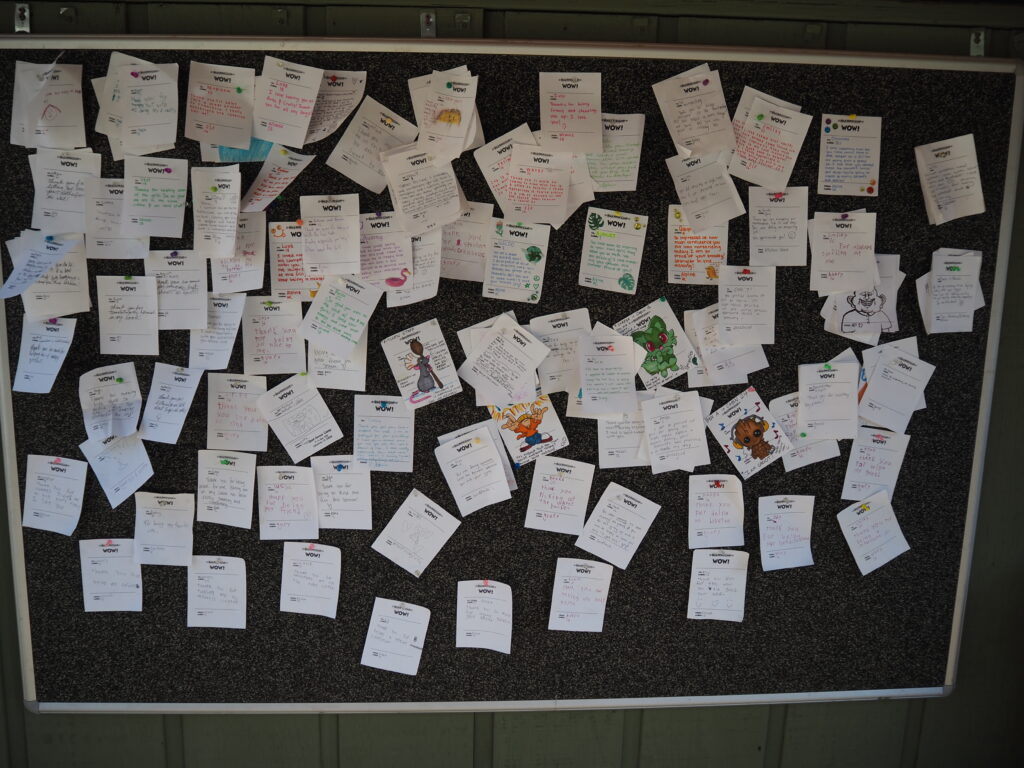
Give meaningful WOWs by using this formula: Person’s Name + Quality + Evidence (what they did and/or how it made you feel).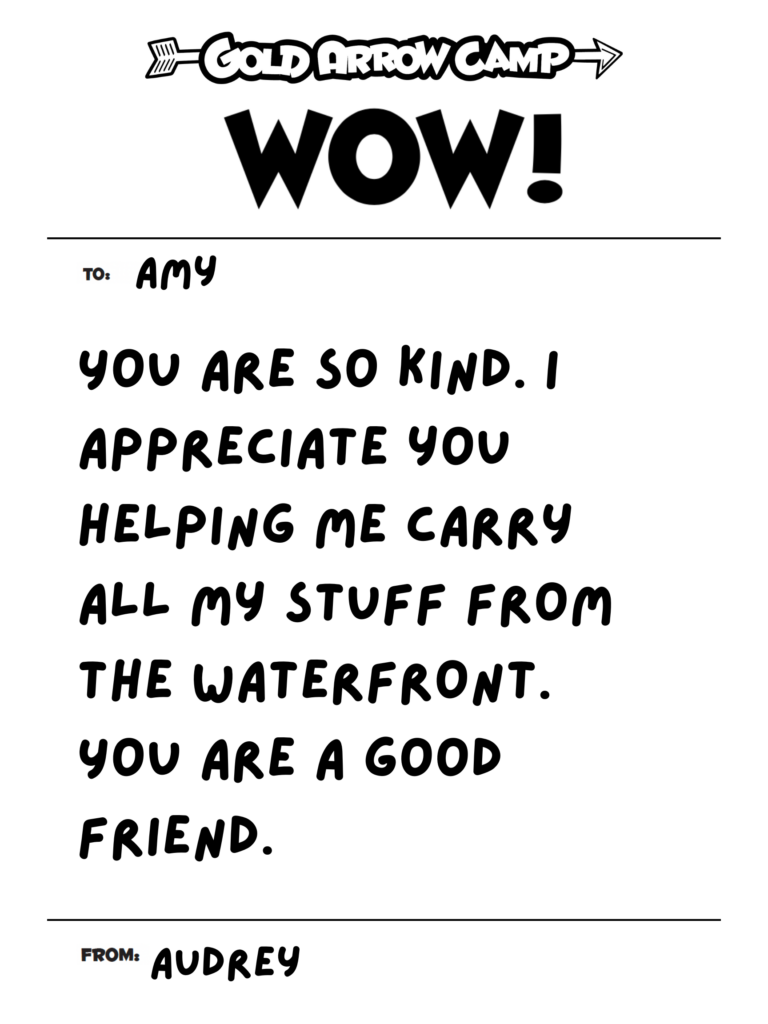
Resources/Related
The Magic Relationship Ratio, John Gottman (article)
The Magic Relationship Ratio, Sunshine Parenting (video)
Filling Buckets: Our 2019 Theme (article)
The Most Meaningful Words You’ll Say this Summer, Camping Magazine (article)
3 Reasons to Give Your Kid a “WOW” Today, Sunshine Parenting (article)
The Power of Positive Words, Sunshine Parenting (article)
Catch them Doing the Right Thing (article)
Podcast: Play in new window | Download
Subscribe: Spotify | Email | RSS
Episode 88: Razz Talks about Camp
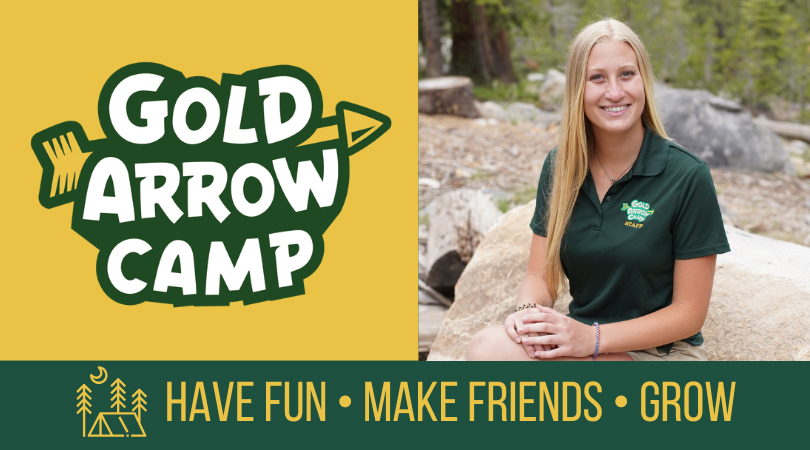
Sunshine talks with experienced Gold Arrow Camp camper and counselor, Lucy ‘Razz” Mahlmeister, in this episode of the podcast. Razz talks about her time at GAC, which started in 2010 when she was an eight-year-old first time camper. Razz spent eight years as a camper, one year as a Junior Counselor, and has now been on staff for five years, primarily as a watersports activity counselor, teaching campers kneeboarding, wakeboarding, waterskiing, and wakesurfing.
Podcast: Play in new window | Download
Subscribe: Spotify | Email | RSS
Episode 87: Experienced Campers Talk about Camp

For parents and campers who are new to Gold Arrow Camp, you won’t want to miss this episode! A group of Junior Counselors (16 & 17 year old experienced campers) join Sunshine for a chat about their experiences and growth over their summers at camp. This was recorded in 2018 but their insights are still as relevant today!
Podcast: Play in new window | Download
Subscribe: Spotify | Email | RSS
Episode 86: Thrivers with Dr. Michele Borba
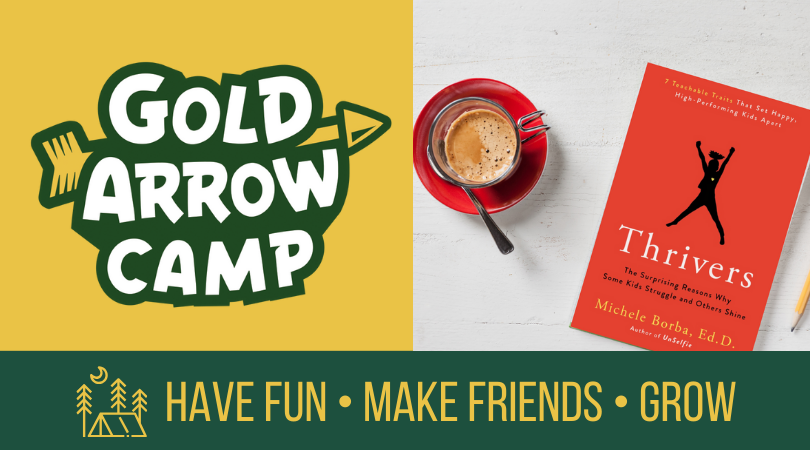 This episode was originally published on Sunshine Parenting and is geared towards parents, staff, and older campers. There are mentions of youth mental health issues, including suicide, so parents please listen before deciding whether to share with your younger kids.
This episode was originally published on Sunshine Parenting and is geared towards parents, staff, and older campers. There are mentions of youth mental health issues, including suicide, so parents please listen before deciding whether to share with your younger kids.
Join Sunshine for her conversation with Dr. Michele Borba about her phenomenal, must-read book THRIVERS: The Surprising Reasons Why Some Kids Struggle and Others Shine – 7 Teachable skills of heart, mind, & will that set happy, healthy, high-performing kids apart.
At GAC, our vision is Creating a happier world, one camper at a time. Our mission – what we specifically focus on – is building positive habits and character traits for a thriving life. We follow the research about what kids need to thrive now and into adulthood. The book Thrivers is a great resource for all of our staff and parents.
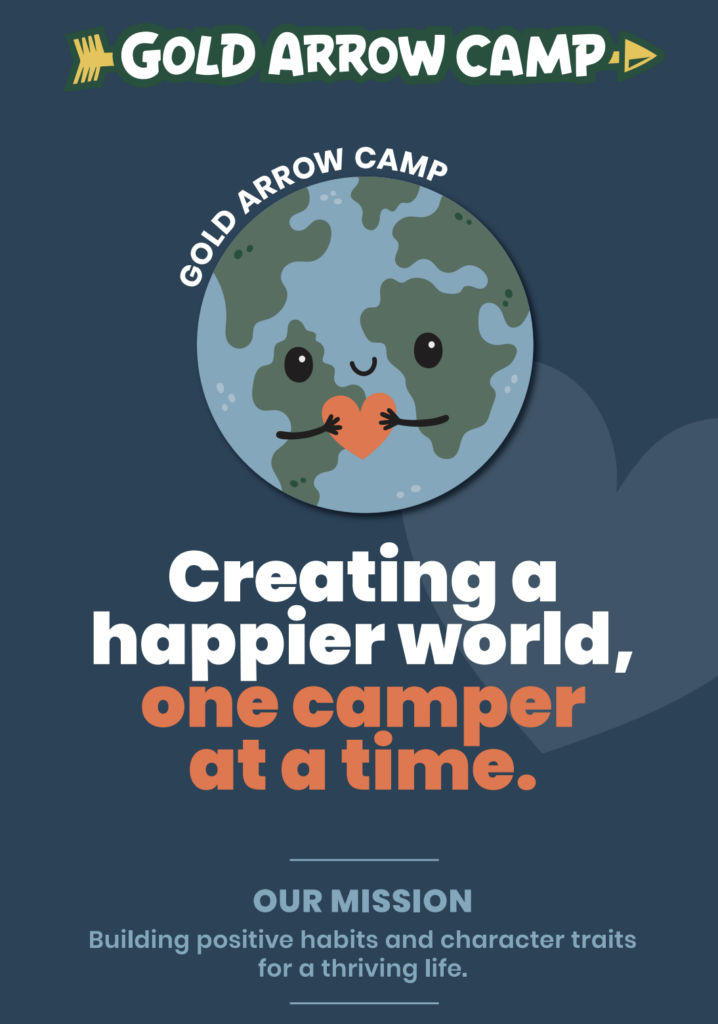
About Dr. Michele Borba
Dr. Michele Borba is an educational psychologist, best-selling author, and TODAY show contributor who has spoken to over one million participants on five continents and to countless media about child development issues.
She blends 40 years of teaching and consulting experience with latest science to offer sound, realistic advice to parents teachers and child advocates about helping children thrive.
Sunshine’s Amazon Review
Dr. Michele Borba’s latest book – THRIVERS: The Surprising Reasons Why Some Kids Struggle and Other Shine – is perhaps her most important book yet – and the timing couldn’t be better. She’s researched seven specific character traits that parents and educators can focus on teaching kids to help them be resilient “thrivers” in a time when many children and adolescents are NOT thriving. The book is divided into three parts (Nurturing Heart, Developing Mind, and Cultivating Will) and each section has two or three specific character traits outlined in detail. Not only does Dr. Borba shares stories and research backing the importance of teaching kids the trait, but she also provides specific age-by-age ideas about how to instill each trait. This book needs to be on every parent and educator’s bookshelf and can be read one chapter at a time (if you want to focus on one trait) or all at once. With youth mental health and suicide rates rising, we all need to stop and reflect on what’s most important to teach our kids. And it’s not math or grammar or athletic skills. Instead, it’s the specific character traits that will help kids excel in all areas. Pick up Thrivers and learn how to teach kids self-confidence, empathy, self-control, integrity, curiosity, perseverance, and optimism — all traits that are teachable and lead to a thriving life.
Resources/Related
7 Essential Character Traits PDF
Thrivers book info & video series
[ENCORE] Ep. 138: Unselfie with Dr. Michele Borba
Podcast: Play in new window | Download
Subscribe: Spotify | Email | RSS
Episode 85: Unplug to Connect

Unplug to Connect
One of our core values at GAC is Unplugging to Connect. Why are we so passionate about the importance of getting off our screens and spending more time in face-to-face interactions? Because it’s good for all of our well-being to improve the quality of our relationships and connection to our families, friends, and communities. We want our campers and staff to experience the positive difference it makes being in a screen-free environment, so that they are compelled to change their own screen habits. The big dream – the one that serves our vision of creating a happier world, is that we go out from our camp community and help bring positive collective action and change to how we all prioritize face-to-face connection outside of camp.
There is now a lot of research-backed evidence about the negative impact excessive screen time is having on people across all generations. Excessive screen time is linked to negative impacts on mental and physical health, with children and teens particularly vulnerable. These impacts include increased anxiety and depression, sleep disturbances, obesity, and reduced cognitive function. The effects can also include behavioral problems, difficulty with social skills, and issues with academic performance.
According to research by Jean Twenge (iGen: Why Today’s Super-Connected Kids Are Growing Up Less Rebellious, More Tolerant, Less Happy — and Completely Unprepared for Adulthood):
After 1 h/day of use, more hours of daily screen time were associated with lower psychological well-being, including less curiosity, lower self-control, more distractibility, more difficulty making friends, less emotional stability, being more difficult to care for, and inability to finish tasks. Among 14- to 17-year-olds, high users of screens (7+ h/day vs. low users of 1 h/day) were more than twice as likely to ever have been diagnosed with depression (RR 2.39, 95% CI 1.54, 3.70), ever diagnosed with anxiety (RR 2.26, CI 1.59, 3.22), treated by a mental health professional (RR 2.22, CI 1.62, 3.03) or have taken medication for a psychological or behavioral issue (RR 2.99, CI 1.94, 4.62) in the last 12 months. Moderate use of screens (4 h/day) was also associated with lower psychological well-being.
Associations between screen time and lower psychological well-being among children and adolescents: Evidence from a population-based study, Dr. Jean Twenge
”Play-based childhood has been replaced by a screen-based childhood and the outcomes of this experiment are a nightmare – least flourishing generation in history.”
Jonathan Haidt
Jonathan Haidt’s The Anxious Generation: How the Great Rewiring of Childhood Is Causing an Epidemic of Mental Illness (2024) presents a compelling argument about the rise in youth anxiety and mental health issues, particularly in the United States and other Western countries. He shares the research about how a play-based childhood became replaced by a phone-based childhood and how detrimental the change has been for children’s mental, physical, and social health.
Around 2010–2015, most teens got smartphones and social media became central to their social lives. Platforms like Instagram, TikTok, and Snapchat are designed to be addictive and encourage social comparison, validation seeking, and fear of missing out (FOMO). Rates of anxiety, depression, self-harm, and suicide have skyrocketed among teens—especially girls—since the early 2010s. Haidt links this surge directly to increased screen time, especially social media use.
We all feel the difference in how smart phones seemed to have taken over all of our lives. There’s now an eery quiet in places that used to be boisterous (school buses, school lunch/recess at schools where phones are allowed). Many of us notice the lack of eye contact and social connections in places where we used to have chats with strangers, such as while waiting in line for a coffee or passing someone on the sidewalk.
Specific adverse effects of screen use on well-being include:
Mental: social media makes it harder to focus / learn / work – read a book, solve a difficult problem
Emotional: social media/screen time causing increased depression, anxiety
Physical: screen time linked to less sleep, less physical activity, more obesity
Social: isolation/loneliness, less practice with social skills leading to more relational challenges, in new/awkward situations, people all retreat to their phones, lessening the chance of connection
Spiritual: Reduced ability to meditate/pray when attention fragmented
Overall, the biggest issue with screen use is what we’re NOT doing when we’re spending hours on our phones and other screens. We’re not:
Spending time with friends
Doing outdoor activites
Participating in hobbies we enjoy / make us feel good
The good news is that experimental studies show that reducing screen time leads to increased happiness and focus within weeks. That’s where camp comes in.
Benefits of Being Unplugged
Gold Arrow Camp offers a unique experience – to be in a community and among people who are collectively unplugged. Time unplugged at camp gives campers and staff the unique opportunity to experience how good they feel when they’re not stuck in the addictive cycle of phone-use caused by apps that use manipulative algorithms to keep their attention.
At camp, we spend time that was once spent on screens on other things that improve well-being, including:
Building Social Connections
More face-to-face time in real-life relationships gives campers the opportunity to form deeper connections (REALationships) with the people they are with. They experience being present with people who are focused and attentive to them, not distracted by phones. Meals, campfires, walking time, and hang-out time are all opportunities for face-to-face connection.
Getting Great Sleep
We prioritize getting good sleep at GAC with our campers getting a minimum of 9 hours of in-bed time (our oldest campers lights out is 10pm and wake up time is around 7am). Not having screens around allows for great sleep.
Discovering New Skills & Hobbies
In addition to learning and doing many fun recreational outdoor activities, campers learn card games, read, journal, play guitar, make friendship bracelets or other crafts, and make some new best friends…The opportunities for growth and discovery are endless when we’re not distracted by screens! Campers experience improved focus and productivity and the ability to be present and get fully engaged with what they are doing in the moment.
More Resources to Explore
Books:
Happy Campers: 9 Summer Camp Secrets for Raising Kids Who Become Thriving Adults, Audrey Monke
The Anxious Generation, Jonathan Haidt
TED Talks:
iGen: The Smartphone Generation | Jean Twenge | TEDxLagunaBlancaSchool
Are Smartphones Ruining Childhood? | Jonathan Haidt | TED
Other:
Podcast: Play in new window | Download
Subscribe: Spotify | Email | RSS
Episode 76: Creating a Happier World with Chelster
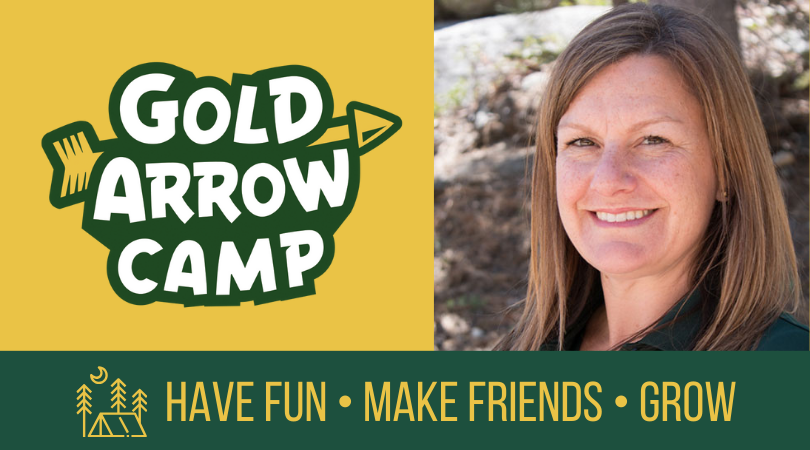
We’re continuing our podcast series on Creating a Happier World with Sunshine’s chat with our beloved Director of Camper and Parent Services, Chelsea “Chelster” Rowe. Chelster shares her GAC story and many insights about camp. Chelster has been on the Year-Round team at GAC for almost four decades and has experienced being a camper, staff member, director, camper parent, and staff parent!
Chelster talks about the importance of the GAC community, how much she enjoys getting to know campers and their parents, and how meaningful her career at camp has been. She also talks about some of the benefits of camp, including the increased confidence campers gain from trying new things, being independent from parents, learning to advocate for themselves, talking to adults other than their parents, and making decisions on their own.
Podcast Credits
Music by Henry “Dobro” Johns
Narration (intro & outro) by Henry “Bravo” Pederson
Produced by JRS Production Creative Audio
Podcast: Play in new window | Download
Subscribe: Spotify | Email | RSS
January Parent Coffee

Want to bring some of the fun, connection, and character and skills growth of GAC home to your family this year? Grab your coffee or tea, login, and join other GAC parents for our first parent coffee of 2024! We’ll learn about and discuss simple, research-based and experience-backed strategies covered in HAPPY CAMPERS for bringing some camp strategies home to your family.
Get your copy of Happy Campers!
Audible
Kindle/Print
Audrey “Sunshine” Monke, who will be speaking at this coffee, is Gold Arrow Camp’s Chief Visionary Officer, the author of Happy Campers: 9 Summer Camp Secrets for Raising Kids Who Become Thriving Adults, and the host of the Sunshine Parenting Podcast. Audrey regularly speaks to parents and teachers on the topics of friendship skills, connection, and well-being. See some of her past interviews and events here.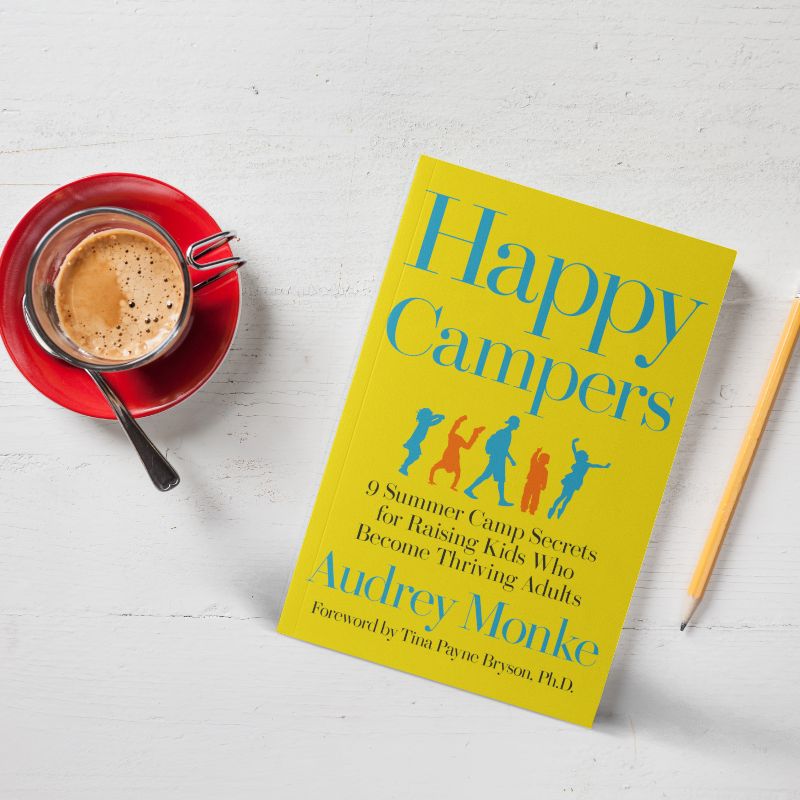
Want to bring some of the fun, connection, and character and skills growth of GAC home to your family this year? Grab your coffee or tea, login, and join other GAC parents for our first parent coffee of 2024! We’ll learn about and discuss simple, research-based and experience-backed strategies covered in HAPPY CAMPERS for bringing some camp strategies home to your family.
Get your copy of Happy Campers!
Audible
Kindle/Print
Audrey “Sunshine” Monke, who will be speaking at this coffee, is Gold Arrow Camp’s Chief Visionary Officer, the author of Happy Campers: 9 Summer Camp Secrets for Raising Kids Who Become Thriving Adults, and the host of the Sunshine Parenting Podcast. Audrey regularly speaks to parents and teachers on the topics of friendship skills, connection, and well-being. See some of her past interviews and events here.
